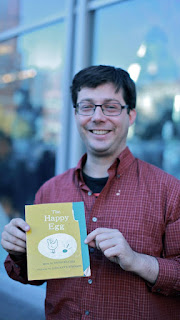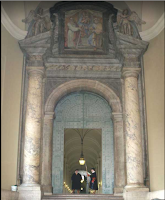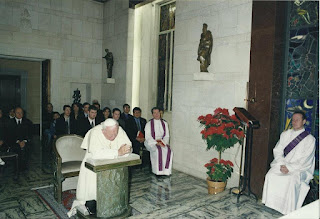A photorealistic action figure tribute to the everyday magic of teaching humanities — complete with books, coffee, and chalkboard charm.
 |
| "Greig, Humanities Teacher" Action Figure |
I can relate to the "Action Figure Challenge" because it brings back memories of me as a kid ogling the newest He-Man action figures in my local K-Mart toy aisle while my mom gathered supplies from the housekeeping department (if you know, you know). When I noticed people using OpenAI's image-generating capabilities to create bespoke action figures of themselves in their professional roles, I knew I had to participate and share my own creation.
Participating in this challenge also serves as a form of healing from a disappointing experience I had with Hasbro and their G.I. Joe action figure promotion. The deal was simple: fill out a form, mail it in with some money, and receive a personalized action figure crafted to your specifications. However, instead of the custom figure I envisioned, Hasbro sent an obviously generic figure with only a printout listing my specifications. Even as a naïve ten-year-old, I knew something was amiss. So here's to you, Hasbro — you contributed to the end of my childhood innocence.
Now that I'm forty-something, I don't exactly play with action figures anymore, though I still have a few figurines hanging around—a pink capybara and a woolly mammoth from Amherst College. Sadly, all my original G.I. Joe, Star Wars, and He-Man figurines are probably languishing in a trash heap somewhere in Arabi, Louisiana (which, in my imagination, is the universal dumping ground awaiting collection by a garbage boat on the Mississippi River).
There's something reflective and even psychologically compelling about action figures. Ostensibly, they're designed for children — particularly those between school age and pre-adolescence, a time when the human mind is especially attuned to play, mimicry, and exploring inner, yet undeveloped fantasies. As a kid, your agency is limited, and you're often at the mercy of your parents. Toy play becomes a way to compensate for this lack of control, simultaneously shaping your vision of your future self. It makes sense, then, why the action figure challenge is trending now: in uncertain times, we often seek solace by imagining ourselves in a simpler era—even though we know, deep down, such simplicity never truly existed.
A full-figure action figure of a person displayed in its original blister pack packaging. 3D toy style.
The packaging header prominently displays the name 'Greig' using bold, stylish typography appropriate for a modern collectible figure. Below or tastefully integrated nearby, the role 'Humanities Teacher' is shown in a clear, complementary font. The overall text design should feel fashionable, appealing, and thematically aligned with the academic and intellectual world of the humanities.
The figure represents Greig and is wearing a dark navy polo shirt tucked into black slacks, reflecting a relaxed yet professional teacher style. His stance is slightly casual with one hand on his hip, conveying an approachable, conversational classroom demeanor. The figure's face should closely resemble the provided image reference.
Inside the blister pack, next to the figure, are the following accessories: a whiteboard with marker, a stack of classic literature books, a reusable coffee mug, a "grading" clipboard, a small desk nameplate that reads “Mr. Greig,” and a laminated class syllabus.
The packaging card design features a chalkboard green background with faint classical architecture sketches and literature quotes, creating an overall attractive and professional backdrop. Add realistic lighting effects that simulate glossy plastic — including soft reflections, subtle highlights, and shadow gradients on the blister surface — to enhance the sense of depth, transparency, and three-dimensionality, making the toy packaging appear lifelike and premium.
Photorealistic rendering, studio lighting, clear focus on the packaging and figure. --ar 2:3





























